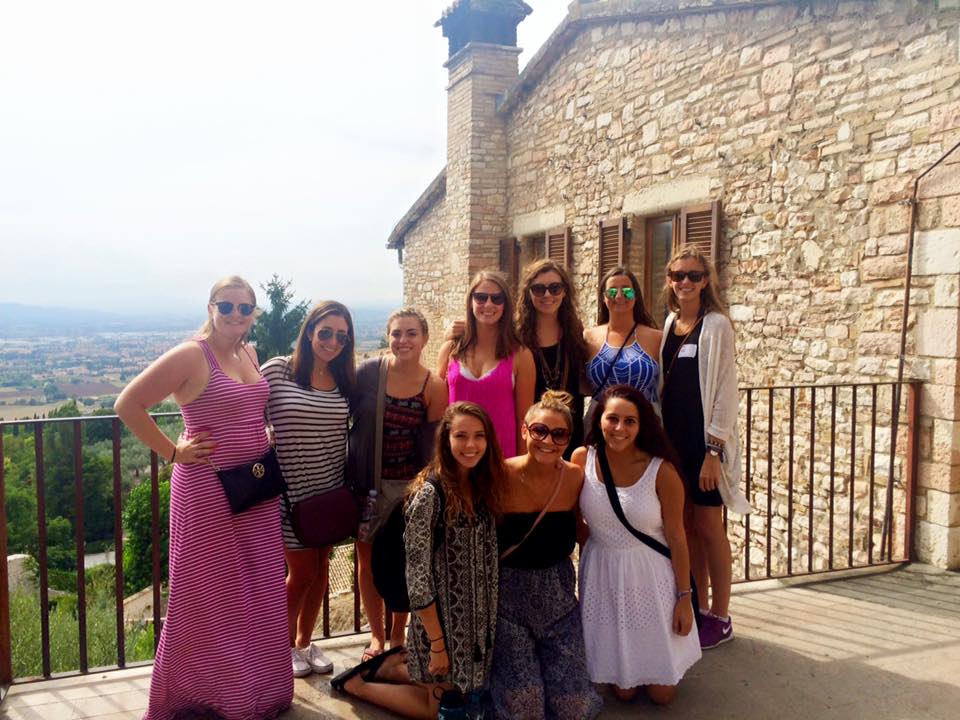Summer Study: Finding deeper meaning from student-teaching experience in Italy
 Hello Readers!
Hello Readers!
My name is Meaghan Creamer, and I am going into my senior year at PC as an Elementary/Special Education major. In the fall of 2015 I had the opportunity to study abroad in Florence, Italy, as part of the Elementary Special Education Diversity in Education program. Once a week, for an hour, I taught Italian students in elementary school how to speak English. I learned how to instruct in a way that is straightforward with high energy. It did not matter that we spoke different languages, the students were excited about me being there, and I couldn’t wait to teach them.
While I was teaching, I found that my intercultural competence was growing, and I was becoming a cultured global citizen. That being said, I loved the program and wanted to look into it on a deeper level. This is where my research for the summer comes in. Dr. Hauerwas and Dr. Skawinski have been working on a research project titled “Culture, Language and Teaching: The Longitudinal Impact of an International Teaching Practicum,” and I asked if I could help out in any way. Dr. Hauerwas and I worked together and decided I should look into the reciprocal benefits that the program has for the Italian children and their teachers. I will be focusing my analysis on the impact of the American university student on the children’s English language skill and global understanding.
How do I do this? Well, while we were in Florence the children filled out a research questionnaire for Dr. Hauerwas that asked 10 questions about their experience having us as teachers. Of course, they responded in Italian, so the first step was having someone translate them to English. Since that step is completed, I now am taking their answers and using a qualitative research coding system called Hyper Research in order to find patterns within their responses. We take every sentence the students wrote and code it into a codebook based on what is said. For example, a sentence such as “They taught me how to pronounce my words better” would go under the code “pronunciation.” This week, we are establishing the reliability of our coding process. At the end, we will be able to see different patterns and then put meaning to those patterns. There are just about 1,500 sentences that need to be coded, so we are busy!
Throughout this process I also am keeping in mind the paper that will be written at the end of the summer to summarize the results! In order to inform myself, I am reading literature that has to do with service-learning programs, abroad programs, and student learning in the classroom. I can’t wait to see the results! I will keep you posted on how it goes!
Meaghan





